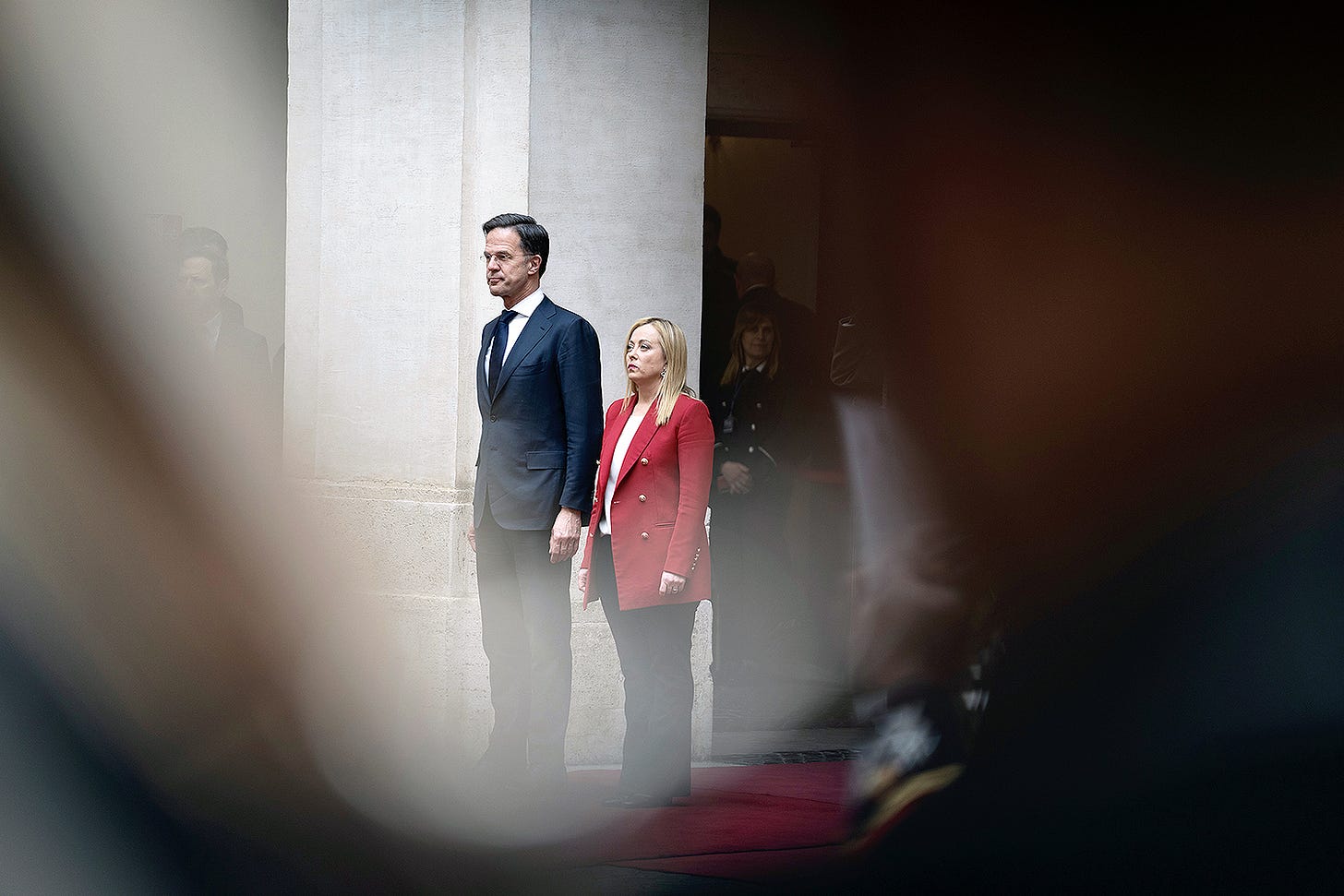Meloni’s Asylum Plan Gains Support
The EU would pay non-member states to shelter asylum seekers.

Giorgia Meloni may get her wish.
When the Italian conservative party leader, since elected prime minister, proposed to fund asylum centers in North Africa, she was called a xenophobe by the left in her own country and abroad.
Now it is part of a tentative EU agreement to manage asylum applications, which are approximating the records of 2015 and 2016.
European migration ministers have agreed that transit countries like Tunisia could be paid to shelter asylum seekers. The same countries would need to take back illegal migrants who crossed the Mediterranean Sea by boat.
Such boats regularly capsize, killing an estimated 1,200 migrants last year.
Ministers also discussed trade sanctions for countries that do little to stop irregular migration.
Northern member states want to restore “Dublin”
They remain divided over who should take responsibility for the asylum seekers that do reach Europe.
Central and Northern European member states argue for restoration of the so-called Dublin Regulation, which requires asylum seekers to apply for status in the first EU country they arrive in.
Germany suspended this rule in 2015, when Greek and Italian authorities were overwhelmed by an influx of 1.3 million Syrian refugees and then-Chancellor Angela Merkel agreed to hear their asylum claims. The current German government, which no longer includes Merkel’s party, argues EU border states should take asylum seekers back.
“It is the law, they are obliged to readmit,” Interior Minister Nancy Faeser of the Social Democrats told reporters before a summit in Brussels last week.
Austria, Belgium, Denmark, France, the Netherlands and Switzerland (which is not an EU member but has open borders with the bloc) agree.
Southern member states ask for help
Mediterranean countries want help before restoring “Dublin”: financial aid, to shore up border security, and a proportionate distribution of refugees (asylum seekers whose claims have been recognized) across the 27 member states of the EU.
“We cannot continue to talk about the need to impose more responsibility on frontline member states if there is not an equally prescriptive and mandatory solidarity mechanism toward the countries of first reception,” Greek migration minister Notis Mitarachi said after meeting with colleagues from Cyprus, Italy, Malta and Spain.
Sweden’s Maria Malmer Stenergard, whose country holds the rotating presidency of the European Council, said ministers would try to reach a common position when they meet again in June.
Asylum claims have doubled in two years
The EU registered 330,000 irregular border crossings last year, a 64-percent increase from 2021.
924,000 asylum applications were made, up 46 percent from 2021 and the highest since 2016. More than half a million asylum applications are pending.
Afghans and Syrians are the largest groups with a combined 261,000 applications, followed by Turks, Venezuelans and Colombians.
26,000 migrants are believed to have died at sea since 2015. Another 632,000 have been rescued by European navies.
One in three asylum seekers apply in Germany, 19 percent in France and 8 percent in Italy. Bulgaria, Greece and Italy receive far more arrivals than asylum requests. Most migrants seek status in Germany, France or the Netherlands. Spain takes a high share of South American asylum seekers.
The figures include few Ukrainians, who can remain in the EU for up to three years without asylum.
Why asylum claims have increased
Asylum applications are up for various reasons:
The end of COVID-19 travel restrictions.
The return of the Taliban in Afghanistan.
Hyperinflation and food insecurity in Venezuela.
Repression of dissidents, especially followers of the Gülen movement, and Kurds by Recep Tayyip Erdoğan in Turkey.
February’s earthquake in Syria and Turkey.
Few unrecognized migrants return
About one in three asylum claims are recognized EU-wide. Syrians are almost always accepted as refugees. Two in three Afghans are. Venezuelans are typically denied permanent asylum but allowed to remain in the EU on humanitarian grounds. Algerians, Moroccans and other North and West Africans are almost always denied.
Keep reading with a 7-day free trial
Subscribe to Atlantic Sentinel to keep reading this post and get 7 days of free access to the full post archives.



